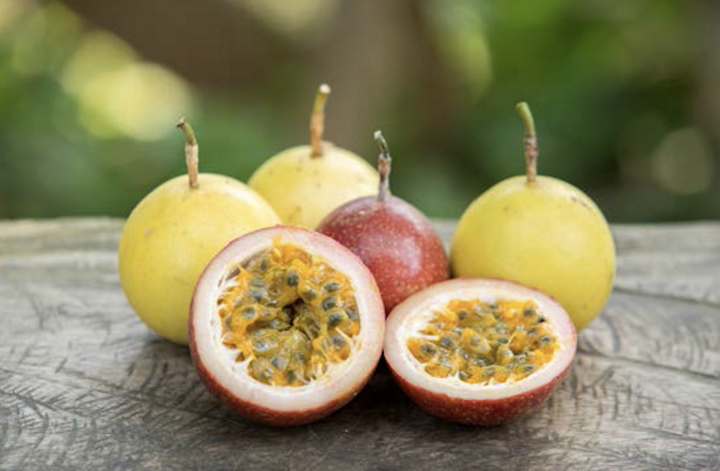Like other foods, passion fruit, no matter how good it is, needs to be used properly, otherwise it will bring many harmful effects to health.
Every summer, passion fruit (also known as passion fruit) becomes a popular thirst-quenching drink. Passion fruit is not only fragrant and cool, but also very nutritious, bringing many benefits to the body.
However, if you do not know how to use it, passion fruit, like many other nutritious foods, will bring many harmful effects to your health.
1. Benefits of passion fruit:
– A rich source of vitamins and fiber: Passion fruit contains a lot of vitamins A and C, iron, potassium and other nutrients that provide a very good amount of multivitamins for human health.
The mucilage surrounding passion fruit seeds is an excellent source of fiber that helps with digestion, increases health without causing obesity.
– Prevents the development of cancer cells: Passion fruit contains phytochemical compounds, phenolic acids and flavonoids that not only help fight cancer cells but also prevent cardiovascular disease and fight infections.
– Good for diabetics: Passion fruit contains many simple sugars that help increase physical strength without harming blood sugar, so it is very good for diabetics.
– Sedative: Passion fruit contains many compounds that help reduce heat and calm the nerves very well. Scientists have used passion fruit to make pills to help calm the nerves and prevent insomnia…
People who have trouble sleeping will feel relaxed and fall asleep easily if they drink passion fruit before going to bed.

2. Unexpected harms of passion fruit if used incorrectly:
Here are the harms of overusing passion fruit or using it on the wrong people or in the wrong way:
When eating too much passion fruit:
If you use passion fruit too much and too often, it will lead to side effects such as fatigue, nausea, lethargy and vomiting. Sometimes, it also makes you feel dizzy and have an irregular heartbeat.
Therefore, use passion fruit in moderation and remember to alternate with other fruits to supplement many nutrients for the body.
When eating passion fruit with seeds:
Many people know that the nutrients of passion fruit are found in the mucous membrane surrounding the seeds, also known as the seed coat. Therefore, they have the habit of eating the seeds to make the most of this source of nutrients.
However, passion fruit seeds do not contain any nutrients, and they are also hard and difficult to digest, so they can put a burden on your digestive system.
If you eat too many passion fruit seeds, they will not be able to be excreted. During the process of moving, if these seeds accidentally fall into the diverticulum of the large intestine, it will cause appendicitis or diverticulitis of the large intestine.
When taking medication:
Substances in passion fruit can interact with some drugs such as sedatives and antihistamines or some herbs… It also increases the risk of bleeding because of interactions with anticoagulants.
Therefore, be careful not to use passion fruit while taking the above drugs.
When you are sick:
If you have allergies or stomach ulcers, you must be very careful when using passion fruit for the following reasons:
Passion fruit can cause allergic reactions such as hives, difficulty breathing, asthma, angioedema… At the same time, passion fruit has many organic acids that can cause damage to people with stomach ulcers.





